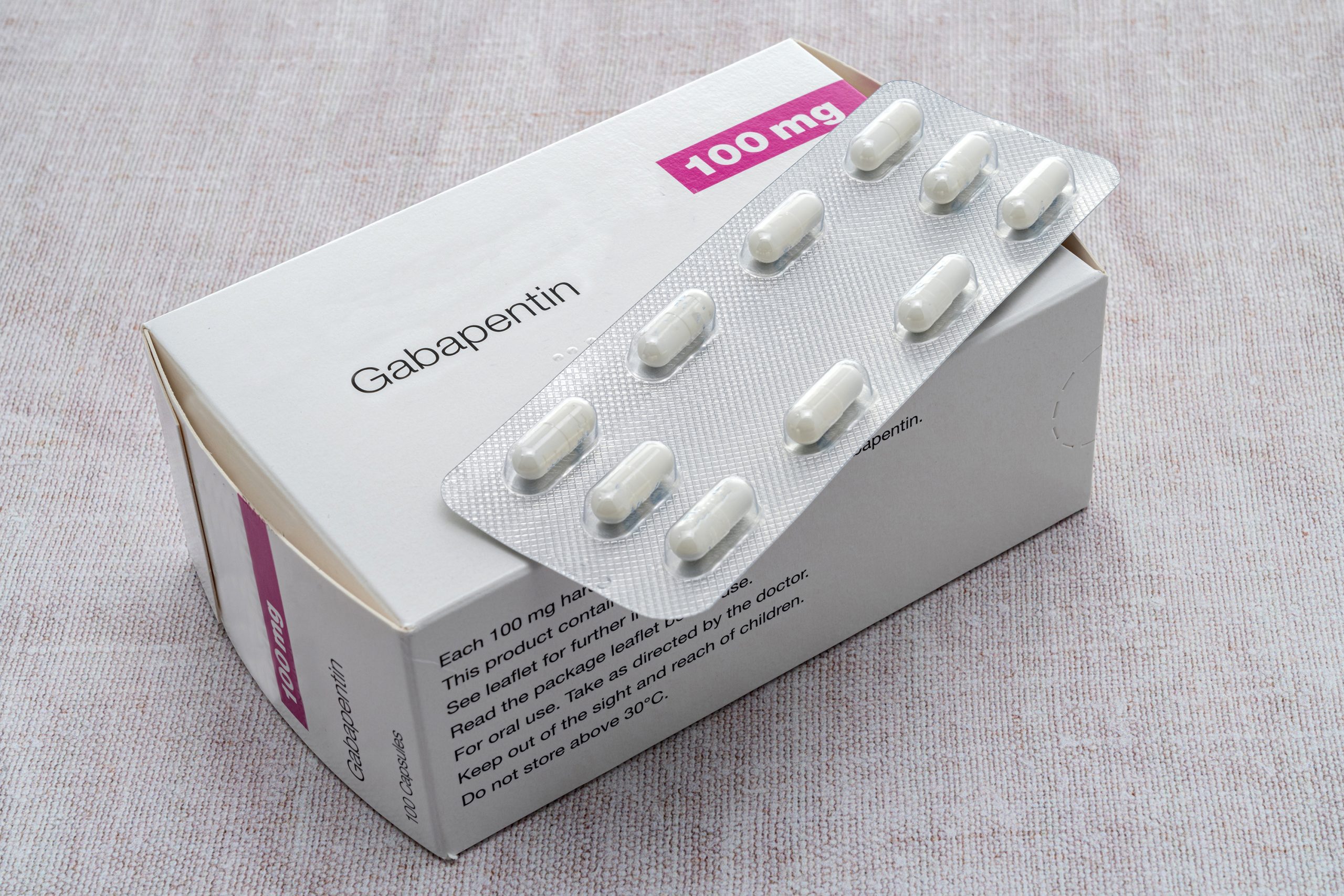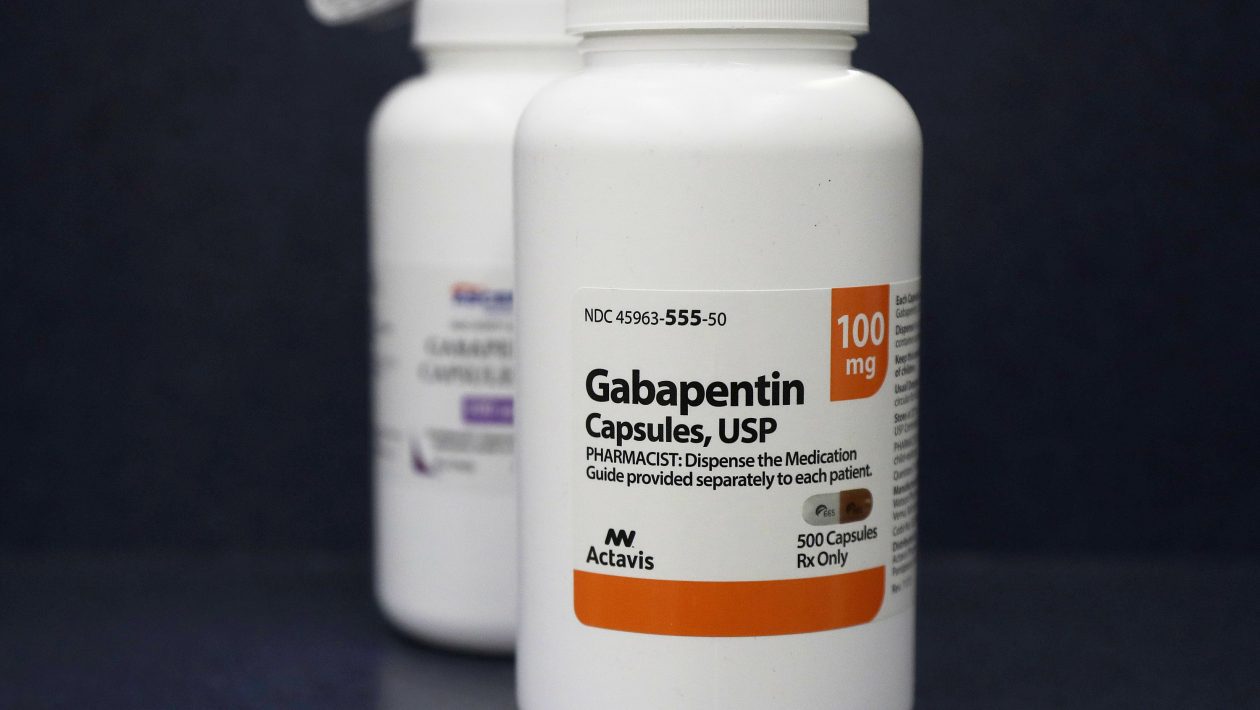Gabapentin is a popular medicine used in the treatment and as a pain reliever in multiple nerve-related health issues. It is an anticonvulsant and is most commonly recommended to patients with epilepsy to control certain kinds of seizures. It is also prescribed off-label by doctors to treat pains due to nerve damage caused by non-related diseases like diabetes. Unlike typical painkillers, gabapentin changes the way the body experiences pain. Like any other medicine, this medication also comes with side effects. A common question that patients ask is – does gabapentin cause weight gain?
How Does Gabapentin Work?

When consumed for seizures, the medicine reduces abnormal excitement in the brain. It also changes the way the body senses pain or discomfort. Due to such benefits, it is prescribed for medical issues such as the above. But does gabapentin cause weight gain? To answer that, first, we need to know the side effects of this medicine.
Side Effects – Does Gabapentin Cause Weight Gain Also?

According to Medline Plus, an online health information resource, here is a list of all the side effects a person may experience when consuming Gabapentin medicine. Some of these side effects are experienced as early as a week.
Drowsiness, dizziness, tiredness or weakness, headache, uncontrollable shaking of a part of your body, unsteadiness, double or blurred vision, anxiety, strange or unusual thoughts, memory problems, unwanted eye movements, nausea, vomiting, heartburn, diarrhea, dry mouth, constipation, increased appetite, weight gain, fluid retention (edema), swelling of the hands, feet, ankles, or lower legs, back or joint pain, fever, runny nose, sneezing, cough, sore throat, or flu-like symptoms, ear pain, and red, itchy eyes (sometimes with swelling or discharge).
Does gabapentin cause weight gain? According to the list above, weight gain is a side effect of consuming Gabapentin. Although it is not a very common side effect, some patients have complained of weight gain and fluid buildup in the legs post-consumption of the medicine.
What Special Dietary Instructions Should I Follow?
Most doctors recommend following a normal diet. However, they advise against alcohol consumption as that may increase drowsiness. One of the side effects of consuming gabapentin is drowsiness. Alcohol consumption might increase it further. And another side effect is weight gain. Also, some alcohols have high GI levels that contribute to weight gain. So, it is better to watch what the patient is eating so that foods with high GI levels do not add fuel to fire.
Does Gabapentin Cause Weight Gain Beyond Control and by How Much?
Gaining weight is one of the side effects of gabapentin. However, it is very uncommon. Only a few patients taking this medicine for seizure or post-herpetic neuralgia have reported increased weight. Such patients have gained around 5 pounds after consuming this medicine for over a month.
Does Gabapentin Cause Weight Gain
– in Epilepsy Patients?
Compared to 2% of patients taking a placebo, around 3% of patients older than 12 years reported weight gain due to regular consumption of gabapentin. Even in the case of pediatric epilepsy patients who are 3 to 12 years of age, around the same percentage of patients have experienced weight gain.
– in Post-Herpetic Patients?
Does gabapentin cause Weight gain in post-herpetic neuralgia patients?
Out of all the patients who took gabapentin, to get relief from pain caused by post-herpetic neuralgia, around 2% experienced weight gain. On the contrary, those who took a placebo did not report an increase in weight.
Why Does Gabapentin Cause Weight Gain?

The reason for gaining weight while on gabapentin is that the medicine tends to increase appetite. Therefore, patients become very hungry and end up eating more. Another side effect of gabapentin is that it causes fluid retention in the body. That also leads to an increase in weight. Gabapentin also tends to cause fatigue in patients. So they feel sluggish, and their bodies don’t get enough exercise. That could also be another reason for weight gain.
Will 300mg of Gabapentin Cause Weight Gain?
Weight gain isn’t a common side effect of gabapentin. Although a lot of patients on 300mg of gabapentin do ask, ‘does gabapentin cause weight gain?’ But it’s difficult to point out one reason for weight gain. Gabapentin does indeed lead to an increase in appetite, but patients may gain weight if they do not change their food patterns. For this, a patient needs to consult a dietician who can prescribe a diet chart to help the patient not gain weight by eating.
Does Gabapentin Cause Belly Fat?

Gabapentin, like corticosteroids, stimulates the appetite making one feel hungrier than usual. Also, some patients on gabapentin tend to experience fatigue, which makes them not exercise as much as they should. All these factors lead to weight gain in some patients. The belly region is one of those body parts more prone to gain extra pounds. Hence, in very few patients who take gabapentin, the medication can cause belly fat. But weight gain due to medication is noticed within six months, and the weight gain also varies from person to person.
How Can I Avoid Weight Gain?

If you or your loved one is consuming gabapentin and are worried about gaining weight, then you can do some things to avoid it. Firstly, you can start a healthy and balanced diet that the doctor or a dietician will suggest. This diet should not contain sugar or sugary foods like sweets and desserts. Also, avoid other high-calorie food such as junk food. It is critical to eat small portions throughout the day at regular intervals. Another crucial thing to do regularly is exercise. It is imperative to speak to the primary doctor about this side effect and any other so that, if need be, the doctor can switch medication or lower the dose.
Weight Loss After Stopping Gabapentin
A lot of patients, who participate in online groups and forums, complain of weight gain while they are on gabapentin. Also, some people posted about weight loss after stopping the consumption of this medicine. For example, a patient from Los Angeles who had been taking gabapentin for 2 years, saw tremendous weight gain. But after stopping, she wrote that she lost 30 pounds within 1 -3 months without any exercise or special diet chart. So before stopping gabapentin, it is important to speak to the primary care doctor, who can suggest some ways to make a safe transition, without any brutal withdrawal symptoms.
Does Gabapentin Cause Bloating?
Gabapentin induces constipation in some patients, but it’s not common. Only about 4% of patients experienced this side effect. Constipation sometimes leads to bloating. Some doctors also prescribe antacids and a specific diet chart to prevent bloating. If you are consuming an antacid such as Maalox, Mylanta, Gelusil, Gaviscon, Di-Gel, or any other aluminum or magnesium-containing medicine, wait for a minimum of two hours before taking the next dose of gabapentin.
Why Is Gabapentin Prescribed?
Also sold under brand names Neurontin, Horizant, and Gralise, gabapentin capsules, oral solutions, and tablets are mainly used for nerve-related pains. However, doctors prescribe this medicine for other issues and non-pain-related conditions like anxiety and alcohol withdrawal. Therefore, gabapentin is very popular, and doctors prescribe it frequently everywhere, sometimes over-prescribed. But most commonly, doctors prescribe for the following conditions –
To control certain types of seizures
If you or your loved one has epilepsy, you might be taking Gabapentin to control some types of seizures. Epilepsy is a disorder of the Central Nervous System in which the brain activity becomes abnormal. That can trigger unusual behavior, sensations, sometimes loss of awareness, and seizures.
To alleviate the pain of post-herpetic neuralgia
Around one in five people, who suffered from shingles, have experienced post-herpetic neuralgia. Post-herpetic neuralgia is a lasting pain in those parts of the skin affected by shingles. Although it is a time-taking process, recovery from post-herpetic neuralgia is possible.
However, as long as a patient is suffering from post-herpetic neuralgia, he may experience pain in the affected parts of the skin. It can be a continuous or a continual pain (which means it can come and go). The pain can feel like burning, stabbing, aching, throbbing, shooting, or electric shocks. Sometimes the doctors prescribe gabapentin capsules or tablets to patients so that they can get relief from these kinds of pains.
To treat people with Restless Legs Syndrome
Gabapentin extended-release tablets are used to treat patients with RLS or Restless Legs Syndrome. Also known as Willis-Ekbom disease, RLS is a condition where patients cannot control the urge to move their legs due to an uncomfortable sensation. Patients often describe the sensations as itching, aching, pulling, throbbing, crawling, creeping, or electric.
This condition worsens in the evenings or at night, even while sleeping. Patients feel temporary comfort when they move a little, but this disrupts their sleep. As a result, they feel drowsy during their active hours creating a problem in their daily activities. Gabapentin is prescribed by doctors to get comfort and treat the problem.
Conclusive Insights
Gabapentin has several side effects. But does gabapentin cause weight gain? Yes, weight gain is one of the side effects of this medication, though very uncommon. The weight gain is mainly because the medicine induces appetite, which makes a patient eat more. Also, gabapentin increases fatigue because of which the body does not exercise as much as it needs to. All these factors contribute to weight gain, which one can avoid by consuming a balanced diet and exercising regularly.





